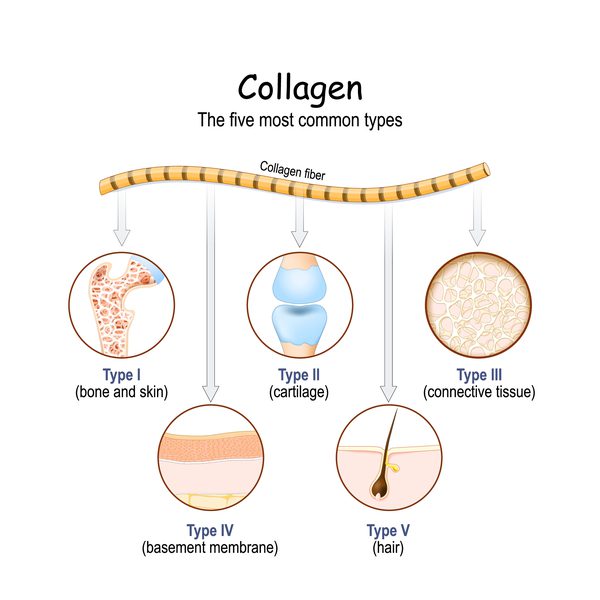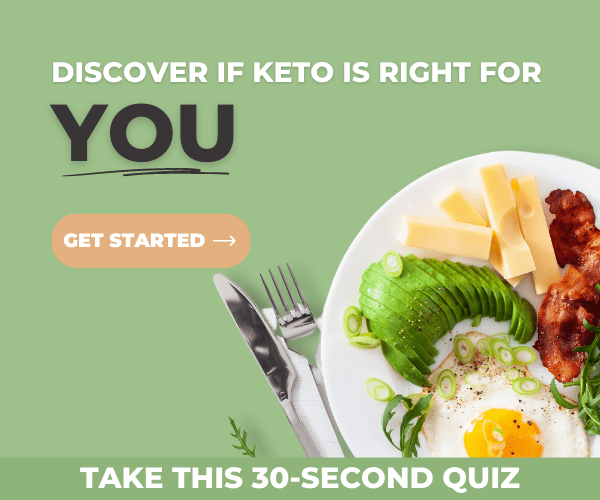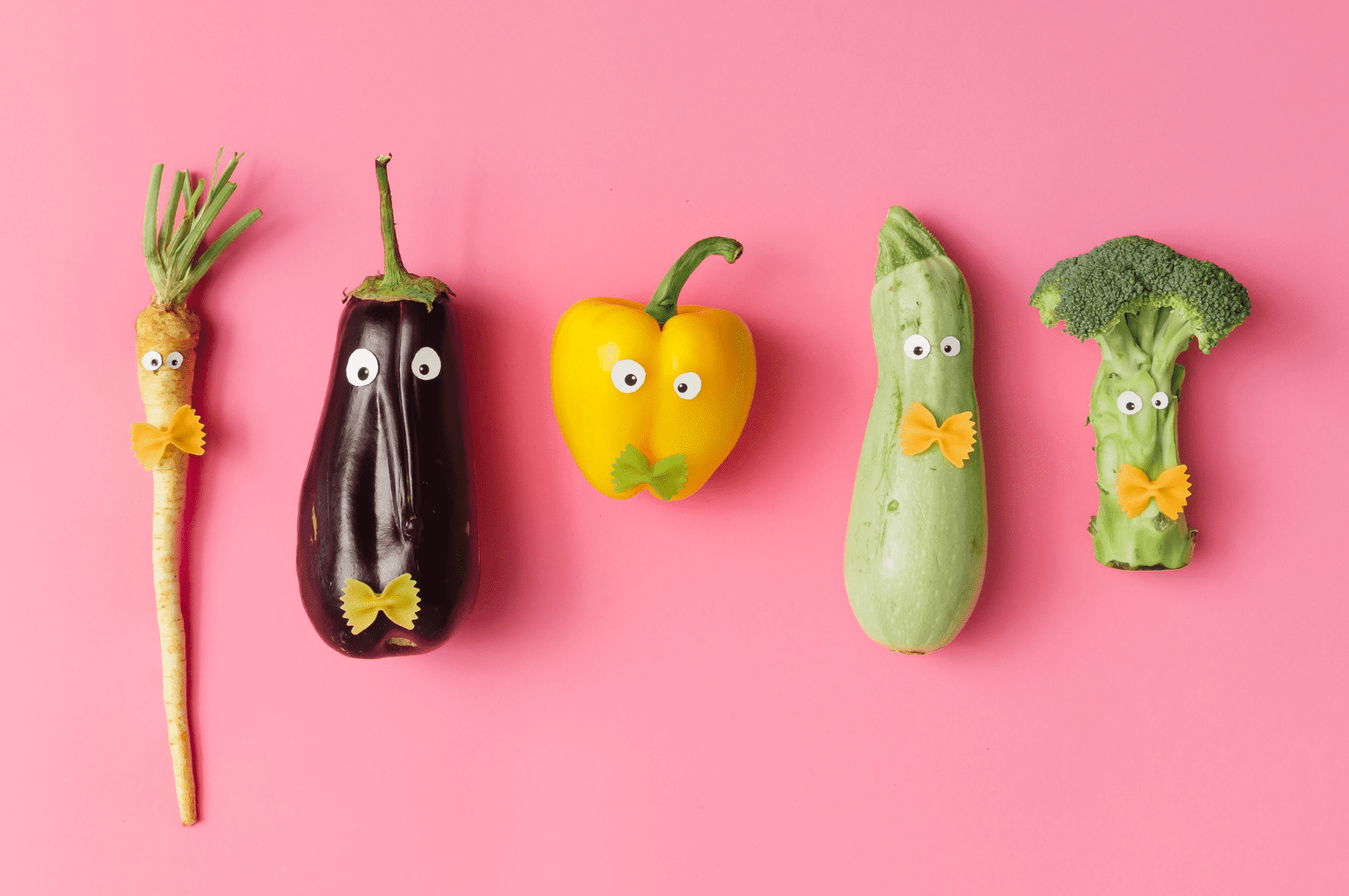
Fasting is soaring in popularity as more people realize the benefits. Religions like Buddhism and Islam have long incorporated fasting, and today, everyone from athletes and fitness fanatics to people with certain medical conditions and weight loss goals is raving about the advantages of fasting for health.
So you’re giving fasting a try and you’ve put a lot of effort resisting those hunger pangs and urges for certain foods and flavors. One of the most important things is to know what breaks a fast, so you can decide what type of fasting is right for you and so you can avoid breaking your fast accidentally. This article is a helpful guide to what breaks a fast.
What Is Fasting?
Fasting is an eating pattern or plan where you switch between eating and abstaining from eating during particular time windows. The focus is on when you eat, not what you eat. Intermittent fasting means only eating during a specific time, such as fasting for 16 hours and then eating during an 8-hour window of the day, while extended fasting generally refers to fasting for more than 24 hours.

Research shows that even eating just one meal per day (called OMAD) and fasting for the rest of the day has positive effects on health. Fasting allows your body to recover and heal rather than focus on digestion. Fasting reduces insulin levels, which can help to stabilize blood sugar. A more stable blood sugar lowers your risk of all forms of diabetes and metabolic syndrome. Just like the ketogenic diet, fasting allows you to step off the blood sugar rollercoaster that’s common with the modern Westernized way of eating. Fasting and refraining from eating also promote cellular processes in which your body rids itself of damaged and harmful cells. [1]
The most popular approaches to intermittent fasting include the following:
- 16/8 (Daily Time-Restricted Fasting): You fast for 16 hours of the day and consume your food during an 8-hour eating window.
- Alternate-Day Fasting: You fast one day, eat normally the next, and then repeat.
- 5:2: You eat your normal diet five days a week and fast for the remaining two days of the week.
The human body has evolved to go without food for many hours and even several days or longer. During the Paleolithic era, before the dawn of agriculture, our hunter-gatherer ancestors evolved to survive and thrive for long periods without food because there wasn’t food consistently available at all times. Sometimes there was no wild game to hunt and no nuts or berries to gather.
In our modern world, as we’re surrounded by gadgets, entertainment, and digital screens, and since we have food available whenever we want it, many of us tend to sit and snack all day and often some of the night too. Intermittent fasting combats this unhealthy and unnatural behavior by getting you back in line with your ancestral way of eating.
Your body burns through your sugar stores when you fast, and after some time (typically one or two days), your metabolism switches over to burning fat instead of glucose and you enter ketosis. It could take two to four weeks before your body becomes fully accustomed to intermittent fasting. Headaches, fatigue, and other side effects of this metabolic switching typically go away within two weeks to one month of implementing intermittent fasting. People who are more metabolically adapted and eat a healthier diet, in general, are less likely to experience symptoms. Some people choose to add an electrolyte powder with no additives or sweeteners to their water to prevent or diminish any uncomfortable symptoms prompted by a loss of electrolytes.
The Science Behind Breaking Your Fast

Consuming calories breaks your fast because you’re no longer refraining from eating. Breaking your fast refers to the moment when you begin consuming calories, which takes your body out of the fasting mode and into growth mode. When you’re in fasting mode, you produce ketones, burn fat, and activate those important cellular repair processes. [2]
Consuming calories switches you over to growth mode, largely due to the insulin hormone. Insulin is a growth hormone that helps you build muscle, prevents your blood sugar levels from skyrocketing too high, and stores energy in your cells for later. When you eat a meal, especially a meal with carbohydrates, insulin levels rise, which shuts down your fast. [3]
mTOR is a genetic growth pathway activated when you eat protein and carbs. When mTOR goes up, AMPK goes down. Put simply, AMPK is a pathway associated with the benefits of fasting [4] [5]
In short, when you take in calories, you activate systems that break your fast, especially when those calories are protein and carbs. Of course, the amount of calories matters, and the more calories you consume, the more you’ll impact insulin, mTOR, and blood sugar, and the more you’ll negate the positive effects of fasting.
What Foods and Drinks Will Break Your Fast?
You’re probably wondering what foods and drinks break your fast. Let’s dive in:
Water
Of course, plain water and carbonated or sparkling water won’t break your fast. Dry fasting isn’t usually recommended and the human body needs crucial hydration. Wet fasting is the term for fasting while drinking water and staying hydrated. Drinking water can also help squelch hunger pains; when you think you’re hungry, you’re sometimes just thirsty.

Coffee
Coffee is essentially non-caloric (there are fewer than 5 calories in a cup), so it’s generally accepted that coffee will not break your fast. If you add lots of sugar, milk, or cream, that’s another story. Fasting “purists” often claim a fast is not a true fast unless you consume water only, or perhaps water mixed with a sweetener-free electrolyte powder with no additives or sugar. Interestingly, research shows coffee can induce autophagy in mice, so it could actually enhance the benefits of your fast.
The bottom line is that while there isn’t unanimous agreement on whether coffee breaks a fast (since it does have a handful of calories), it’s unlikely that coffee will have an impact on your fasting and the goals you’re trying to achieve, particularly if that goal is weight loss. If you have digestive issues, you may want to experiment and see how you feel when you drink coffee on an empty stomach and you may want to source an organic and higher-quality coffee. [6]
Tea
Tea also contains zero calories and won’t ramp up insulin or mTOR. Tea also contains antioxidants, which support disease prevention, brain function, eye health, and more. Plenty of keto dieters drink tea while fasting to help them stay on track.
Bone Broth
Bone broth is a mineral-rich stock made from simmering animal bones. Bone broth does contain protein and some calories, but it’s made up of amino acids like glycine that have minimal impacts on growth pathways. Bone broth is somewhat of a gray area, but a mug or two of bone broth shouldn’t significantly impact the advantages of fasting. Some people don’t feel well during a fast unless they include bone broth, hence the term “bone broth fast.” Bone broth is healing for the digestive system, and people might drink bone broth to replenish electrolytes lost from drinking only water for certain time periods.
Apple Cider Vinegar
Some people drink a teaspoon or two of apple cider vinegar (ACV) diluted in water to help stay hydrated and stop cravings. ACV won’t break your fast because it has essentially zero calories or carbohydrates. One tablespoon provides only 3 calories and less than 1 gram of carbs, so it’s unlikely to affect your fast unless you take it in large quantities, which isn’t advised. [7]
MCT Oil, Butter, and Cream
Fat has a minimal impact on insulin, so while technically eating fat does break a fast adding a little fat like butter or cream shouldn’t make any meaningful difference to the metabolic advantages of your fast. People drink coffee containing MCT oil, coconut oil, ghee, or butter to tide them over during a fast because it won’t break ketosis. You may find a buttery coffee allows you to stay on track and brings you a little joy.

Non-Caloric Sweeteners and Diet Soda
Diet soda is a controversial topic when it comes to fasting. One cohort of people believes that diet soda won’t break your fast because it doesn’t have any calories and isn’t supposed to spike insulin or mTOR. [8] Natural and artificial non-caloric sweeteners such as erythritol, sucralose, stevia, and monk fruit supposedly don’t raise insulin levels, so they shouldn’t really interfere with a fast [9]
On the other hand, there is some research linking artificial sweeteners like sucralose to an increased risk of insulin resistance and prediabetes — the stage before full diabetes. [10] These man-made sweeteners taste so sweet that it’s possible they have some type of effect. Most health advocates and keto enthusiasts choose not to consume diet soda during a fast due to the artificial sweeteners, acidity, and ingredients like caramel color, which may pose health risks. [11] You also have the option of choosing more natural sweetener options like monk fruit, stevia, and allulose instead of artificial sweeteners like sucralose and aspartame, though it’s a good idea to test your blood sugar before and after consuming these sweeteners, as they seem to affect some people’s insulin levels.
What Supplements Will Break Your Fast?
You probably won’t become deficient in nutrients while fasting unless you’re doing a restrictive fast for a long period of time. Even so, some people take supplements when fasting to ensure they’re getting enough vitamins and minerals. If your diet is already low in minerals and vitamins, fasting too often could worsen the problem. [12] Choose nutrient-dense whole foods and check in with your doctor about your nutritional status.
Whether or not supplements will disrupt your fast depends on the exact ingredients. It could hamper your metabolic success if it contains more than a minimal number of calories or an insulin-reactive sweetener. It probably won’t interrupt your fast if you only contains vitamins, minerals, or a couple of calories of simple herbs.
If you’re wondering about taking supplements during fasting, here are some of the supplements to avoid during fasting, as they are likely to break your fast. These supplements are best taken during your eating windows:
Branched-Chain Amino Acids
The branched-chain amino acids (BCAAs) called valine, isoleucine, and leucine are the building blocks of protein. These amino acids activate muscle synthesis and promote mTOR, so they’re best avoided during your fast. [13] Research concludes that BCAAs seem to prompt an insulin response that opposes autophagy—your body’s natural process of removing dysfunctional or damaged cells in order to regenerate healthier, newer cells. [14] Nonetheless, some people recommend using BCAAs while fasting before your workout to help preserve muscle.
Protein Powder

Collagen is one of the most abundant proteins in your body, so adding a collagen protein powder to your smoothie or beverage during your eating window is a smart move for your bones, skin, and gut health. Some people believe pure collagen may slightly impair autophagy, but it shouldn’t greatly affect ketosis or fat-burning if you take pure collagen while fasting. [15]
Consuming protein raises insulin and mTOR, so protein powder will also break your fast and tell your body you’re not fasting anymore. Protein powder does contain some calories as well. Most people steer clear of protein powders when fasting.
Gummies and Multivitamins
Multivitamins containing nothing other than vitamins and minerals won’t disrupt your fast, but all multivitamins are different, so you’ll need to look at the ingredients for anything that could provoke an insulin response, such as cane sugar, syrups, and maltodextrin.
Gummy and chewable multivitamins usually contain sugars or proteins that take you out of a fasting state, so you’ll have to check the label. Gummy brands may have as much as 6 grams of sugar per serving, and they often taste sweet, like candy, which could spur cravings. Regardless of what is in them, lots of people can’t take multivitamins on an empty stomach, so you might consider taking any multivitamins during your eating window.
Fat-Soluble Vitamins
Fat-soluble vitamins A, D, E, and K won’t hike up insulin or mTOR, but they are properly absorbed only when taken with dietary fat. For that reason, it’s best to take these vitamins with a healthy high-fat keto meal, rather than during your fasting window. Vitamin D comes packaged in oil, but the dosage of fatty oil, such as olive oil, is so small that it shouldn’t affect your fast if you do decide to take it during your fasting window.
What Supplements Can You Take While Fasting?
Here are some of the supplements that won’t interfere with your fast:
Fish oil
Algae or fish oil contains few calories and no digestible carbs when taken in regular doses. A couple of grams of fish oil won’t be a fast-breaker. Even so, you may feel better consuming these oils with your meals.
Creatine
Loved by athletes and bodybuilders, creatine assists your muscles in energy production during high-intensity exercise or heavy lifting. Creatine improves strength and performance, and it’s also calorie-free and doesn’t affect insulin response. Double-check the label to make sure there aren’t other added ingredients. [16]
Electrolytes
When you’re fasting, you lose electrolytes, such as potassium and sodium, at higher rates. Replenishing these lost electrolytes could prevent the weakness, fatigue, headaches, and other symptoms that sometimes manifest. This is similar to the keto flu experienced when people transition from the standard American diet to the high-fat, low-carb, ketogenic diet. Pick electrolytes without any added insulin-prompting sugars or syrups. A good-quality electrolyte powder could be the support you need to push through your fast.
Probiotics and Prebiotics
Probiotics and prebiotics usually contain no digestible carbs or calories, so they shouldn’t be an issue. [17] Manufacturers might recommend taking probiotic supplements with a meal or after a meal, and it’s probably best to follow the manufacturer’s recommendations. Some experts believe probiotics are best absorbed with food because the food protects the probiotics as they travel through the digestive system. People would traditionally consume probiotics in the form of fermented foods like kombucha, kefir, and yogurt. If you choose to take a probiotic supplement during your fast, look at the label and avoid added sugars.

Individual Micronutrients
Individual micronutrients like potassium, B vitamins, or vitamin D shouldn’t impact your fast as long as there are no problematic ingredients.
Adaptogens
Adaptogens are herbs or herb derivatives known to improve your ability to tolerate stressful situations. Adaptogens don’t really contain any calories, so they won’t get in the way of your fast unless you chew on a big portion of ashwagandha root. Adaptogens are often consumed as a tea, in which the active compounds have been extracted.
Melatonin
Melatonin is a powerful sleep hormone that won’t be a fast-breaker as long as you avoid any added problem ingredients like sugar.
What Foods and Drinks Preserve the Benefits of Fasting?
Some people choose to consume small amounts of bone broth or healthy fats when fasting, and others go for plain water and calorie-free beverages like La Croix and carbonated water. Certain supplements, foods, or drinks containing calories, sugar, or protein will technically break your fast. However, minor amounts of low-carb, high-fat, and moderate-protein foods won’t kick you out of ketosis, so you may still be able to consume them while maintaining those metabolic fat-burning benefits of fasting. This is why many people fast and experience benefits while still consuming bone broth or coffee with a little cream. You should be able to maintain ketosis if your carbohydrate intake is below 50 grams daily. [18]
Because consuming some calories doesn’t really abide by the traditional definition of fasting, which is to abstain from eating altogether, many fasting “purists” say this isn’t really true fasting, that you should only drink water, and that consuming protein, calories, fat, or sugar breaks a true fast. The bottom line is that you can still reap many of the benefits of fasting–including one of the most common goals, weight loss–if you consume small amounts of calories during your fast. For many people, an all-or-nothing approach makes it nearly impossible to fast, and in general, even “dirty” fasting is better than none at all.
The Best Food and Drinks to Break Your Fast
Here are several tips if you’re not sure what to eat to break your fast:
Start with Gentle Foods

Start with gentle foods that are easier to digest and won’t make you feel bloated and tired afterward. Low-carb smoothies, stews, bone broth, soups, and slow-cooked dishes are gentle on the stomach. Foods that are too greasy, sugary, processed, too high in carbs, or even too high in fiber can be more difficult to digest after a fast and are likely to cause you gastrointestinal distress.
You don’t have to eat exotic fermented vegetables, but you should focus on natural, nutrient-dense, whole foods that are keto-friendly, such as avocados, bok choy, eggs, and good-quality meat and seafood. Eat a balanced meal with enough healthy fat and protein to satiate and energize you.
Don’t Overeat
Scale down portion sizes when you break a fast; for instance, you might make a roast chicken breast with a side salad topped with boiled eggs. Or enjoy a keto-approved smoothie to start you off. Over-eating could cancel out some of the metabolic advantages of fasting and can cause digestive issues especially after a longer fast, so don’t go too crazy, and just eat at a steady pace until you feel full.
Don’t Stress
Fasting isn’t all or nothing, and stress won’t push you toward your goals. Instead, stress causes an insulin response, which moves you closer to metabolic dysfunction, insulin resistance, and prediabetes. Most of the items people worry will break their fast don’t have the calories or metabolic effects to make any meaningful difference. Even the fasting purists can’t deny the benefits of caloric restriction, in which you consume limited calories, so don’t be hard on yourself if you do end up drinking a coffee with lots of cream or giving in and consuming a small meal. It isn’t a big deal in the grand scheme of things, and you can simply roll into the next fast.
Don’t worry too much about what breaks a fast; be kind to yourself and enjoy your positive lifestyle changes. Listen to your body and experiment to figure out the best way of eating and fasting for you. Implementing fasting along with a ketogenic diet means you’ve already taken huge strides towards bettering your health and wellness and achieving your goals.
References
Kim, I., & Lemasters, J. J. (2011). Mitochondrial degradation by autophagy (mitogaphy) in GFP-LC3 transgenic hepatocytes during nutrient deprivation. Am J Physiol Cell Physiol, DOI: 10.1152/ajpcell.00056.2010.
Bagherniya, M., Butler, A. E., Barreto, G. E., & Sahekbar, A. (2018). The effect of fasting or calorie restriction on autophagy induction: A review of the literature. Ageing Res Rev, DOI: 10.1016/j.arr.2018.08.004
Wilcox, G. (2005). Insulin and insulin resistance. Clin Biochem Rev, Insulin and Insulin Resistance - PMC (nih.gov)
Saxton, R. A., & Sabatini, D. M. (2017). mTOR signaling in growth, metabolism, and disease. Cell, DOI: 10.1016/j.cell.2017.02.004
Anton, S. D., Moehl, K., Donahoo, W. T., Marosi, K., Lee, S…Mattson, M. P. (2018). Flipping the metabolic switch: Understanding and applying health benefits of fasting. Obesity (Silver Spring), DOI: 10.1002/oby.22065
Pietrocola, F., Malik, S. A., Marino, G., Vacchelli, E., Senovilla, L…Kroemer, G. (2014). Coffee induces autophagy in vivo. Cell Cycle, DOI: 10.4161/cc.28929.
United States Department of Agriculture (USDA) Food Database. Apple Cider Vinegar. FoodData Central (usda.gov)
Horwitz, D. L., McLane, M., & Kobe, P. (1988). Response to single dose of aspartame or saccharin by NIDDM patients. Diabetes Care, DOI: 10.2337/diacare.11.3.230
Arumgugam, B., Subramaniam, A., & Alagaraj, P. (2020). Stevia as a natural sweetener: A review. Cardiovasc Hematol Agents Med Chem, DOI: 10.2174/1871525718666200207105436
Gardener, H., Moon, Y. P., Rundek, T., Elkind, M. S. V., & Sacco, R. L. (2018). Diet soda and sugar-sweetened soda consumption in relation to incident diabetes in the Northern Manhattan study. Curr Dev Nutr, DOI: 10.1093/cdn/nzy008
Consumer Reports. Caramel Color in Soda May be a Health Risk, Caramel color in Soda may be a health risk - Consumer Reports
Collier, R. (2013). Intermittent fasting: The next big weight loss fad. CMAJ, DOI: 10.1503/cmaj.109-4437
Lynch, C. J. (2001). Role of leucine in the regulation of mTOR by amino acids: Revelations from structure-activity studies. J Nutr, DOI: 10.1093/jn/131.3.861S
Asghari, G., Farhadnejad, H., Teymoori, F., Mirmiran, P., Tohidi, M., & Azizi, F. (2018). High dietary intake of branched-chain amino acids is associated with an increased risk of insulin resistance in adults. J Diabetes, DOI: 10.1111/1753-0407.12639
Cai, C-C., Zhu, J-H., Dai, Y-Y., Fang, M-C., Hu, Y-Y…Lin, Z-L. (2019). Glycine protects against hypoxic-ixchemic brain injury by regulating mitochondria-mediated autophagy via the APMK pathway. Oxid Med Cell Longev, DOI: 10.1155/2019/4248529
Rooney, K. B., Bryson, J. M., Digney, A. L., Rae, C. D., & Thompson, C. H. (2003). Creatine supplementation affects glucose homeostasis but not insulin secretion in humans. Ann Nutr Metab, DOI: 10.1159/000068908
Singh, R. K., Chang, H-W., Yan, D., Lee, K. M., Ucmak, D., Wong, K…Liao, W. (2017). Influence of diet on the gut microbiome and implications for human health. J Transl Med, DOI: 10.1186/s12967-017-1175-y
Masood, W., Annamaraju, P., & Uppaluri, K. P. Ketogenic Diet. StatPearls Publishing. Ketogenic Diet - StatPearls - NCBI Bookshelf (nih.gov)










